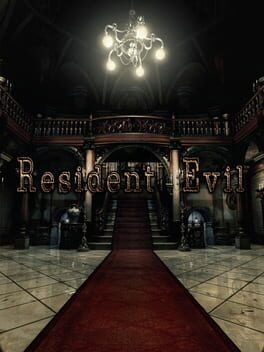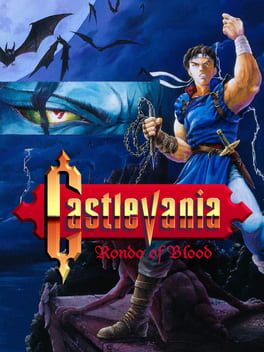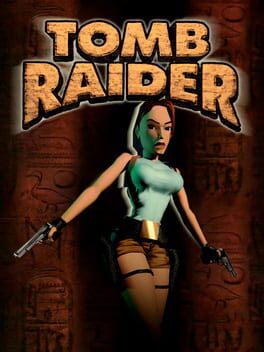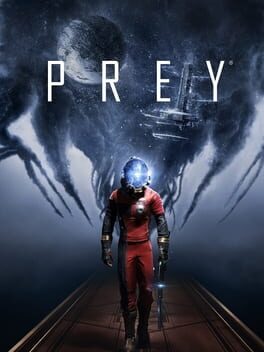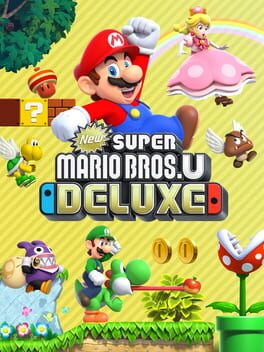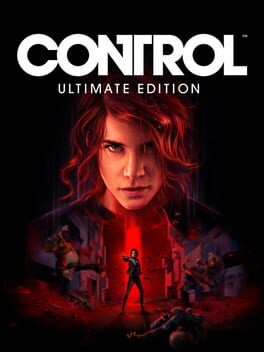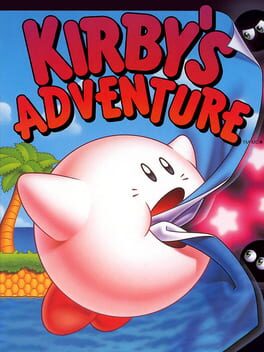AngryAlchemist
Bio
Nothing here!
Badges

Popular
Gained 15+ followers

Pinged
Mentioned by another user

GOTY '23
Participated in the 2023 Game of the Year Event

Liked
Gained 10+ total review likes

Best Friends
Become mutual friends with at least 3 others

2 Years of Service
Being part of the Backloggd community for 2 years

N00b
Played 100+ games

GOTY '21
Participated in the 2021 Game of the Year Event

Noticed
Gained 3+ followers
Favorite Games
169
Total Games Played
018
Played in 2024
145
Games Backloggd
Recently Played See More
Recently Reviewed See More
I usually have a pretty hard time separating Metroid influences from Zelda influences in Metroidvanias (I'm onto you Iga!) but this game is definitely a clear example of how the genre can be more inspired by Zelda than anything else. I mean maybe Billy Basso will come out and say he was only inspired by Metroid, but the entire way progression works in this game reminds me way more of Zelda: Items are basically just puzzle solutions, every time you get an item it's not really an upgrade to your character but basically just a way to continue playing the game. This creates a self fulfilling prophecy where items only really exist to help you progress further in the game, where you'll inevitably need another item to progress further, and so on and so forth, rather than like in Metroid where items usually serve a dual purpose of also upgrading your character and having way more applicable uses outside of puzzles.
But I'm kinda left wondering .... does this really work for a Metroidvania? I mean one of the things that works about Metroidvanias is that no matter how much they may ask of you for your navigational and puzzle solving skills, you'll always be treated to new upgrades and incentives along the way to motivate you to press on. And Animal Well doesn't really do that. Even Zelda has way more true upgrades than Animal Well. If we've seen anything from games in the last few years, it's that intrinsic motivations can be just as good if not a better reason to play a game than extrinsic ones - allowing players and designers to think outside the box and make games around the pure enjoyment of discovery. But Animal Well isn't really like that, it doesn't have any mechanics to facilitate that, it's mostly just a standard puzzle platformer, just put into a Metroidvania setting. Asking players to just press on just because, in a genre that usually rewards backtracking and critical thinking, is a big ask.
Animal Well is at its best when you're making tons of progress back to back. In this way I feel like I kind of ruined the game for myself, because I see a lot of people beating this in 5-6 hours but my playtime was probably more like 9-9.5 hours. And yeah, if I beat this in 5-6 hours I'd probably be giving it high praise. I had a long period of time where I wasn't really sure how I was supposed to progress because I didn't have the slink (I kept going back to the area where you get it multiple times, but I didn't have a key the first time I went there and forgot that it was a key door not a switch door the next time I went, especially because there was a switch in the other room next to it), and I didn't notice the bottom two flames on the map because they were out of my viewpoint. I can't really blame the game for these mistakes, but I do think that it shows how most Metroidvanias would at least compensate for these headaches by giving you some cool rewards. It was fun doing a lot of accidental egg hunts during the middle of the game when I wasn't sure what to do next, but it wasn't fun when I realized how much that affected the pacing hours later.
Lastly I'll say that because the platforming in this game isn't hard and because there's no combat, the game has to compensate by making obstacles obnoxious since there's no other way to really introduce challenge otherwise. Stuff like the second mock disc, or the crazy reflective lasers at a certain part of the game, or those weird switch block puzzles where the developer fakes you out into thinking you've locked yourself out of the puzzle, only to realize there's a switch outside of the puzzle you didn't see .... why even do that? What's the benefit of it? It's not clever when you realize that there was a switch you didn't see, it's just frustrating. Little annoyance like it being way too hard to tell what the map is showing, or the flute controls sucking also don't help. And what is with the yo-yo controls? Has to be the worst item in the game, and in general I'm not sure how to feel about how many of the items later in the game are light on player control.
I'd like to replay it someday, it's a game that with hindsight I could easily see myself loving. I'd give it a 7/10 but that feels a little generous, the highs were incredibly high and a lot of the game was easily some of the most fun I've had with an indie Metroidvania, but the frustrations were immense and the game cracks under pressure pretty quickly.
But I'm kinda left wondering .... does this really work for a Metroidvania? I mean one of the things that works about Metroidvanias is that no matter how much they may ask of you for your navigational and puzzle solving skills, you'll always be treated to new upgrades and incentives along the way to motivate you to press on. And Animal Well doesn't really do that. Even Zelda has way more true upgrades than Animal Well. If we've seen anything from games in the last few years, it's that intrinsic motivations can be just as good if not a better reason to play a game than extrinsic ones - allowing players and designers to think outside the box and make games around the pure enjoyment of discovery. But Animal Well isn't really like that, it doesn't have any mechanics to facilitate that, it's mostly just a standard puzzle platformer, just put into a Metroidvania setting. Asking players to just press on just because, in a genre that usually rewards backtracking and critical thinking, is a big ask.
Animal Well is at its best when you're making tons of progress back to back. In this way I feel like I kind of ruined the game for myself, because I see a lot of people beating this in 5-6 hours but my playtime was probably more like 9-9.5 hours. And yeah, if I beat this in 5-6 hours I'd probably be giving it high praise. I had a long period of time where I wasn't really sure how I was supposed to progress because I didn't have the slink (I kept going back to the area where you get it multiple times, but I didn't have a key the first time I went there and forgot that it was a key door not a switch door the next time I went, especially because there was a switch in the other room next to it), and I didn't notice the bottom two flames on the map because they were out of my viewpoint. I can't really blame the game for these mistakes, but I do think that it shows how most Metroidvanias would at least compensate for these headaches by giving you some cool rewards. It was fun doing a lot of accidental egg hunts during the middle of the game when I wasn't sure what to do next, but it wasn't fun when I realized how much that affected the pacing hours later.
Lastly I'll say that because the platforming in this game isn't hard and because there's no combat, the game has to compensate by making obstacles obnoxious since there's no other way to really introduce challenge otherwise. Stuff like the second mock disc, or the crazy reflective lasers at a certain part of the game, or those weird switch block puzzles where the developer fakes you out into thinking you've locked yourself out of the puzzle, only to realize there's a switch outside of the puzzle you didn't see .... why even do that? What's the benefit of it? It's not clever when you realize that there was a switch you didn't see, it's just frustrating. Little annoyance like it being way too hard to tell what the map is showing, or the flute controls sucking also don't help. And what is with the yo-yo controls? Has to be the worst item in the game, and in general I'm not sure how to feel about how many of the items later in the game are light on player control.
I'd like to replay it someday, it's a game that with hindsight I could easily see myself loving. I'd give it a 7/10 but that feels a little generous, the highs were incredibly high and a lot of the game was easily some of the most fun I've had with an indie Metroidvania, but the frustrations were immense and the game cracks under pressure pretty quickly.
Control is the best Remedy game I've played thus far, because it's the only Remedy game I've played that lets the gameplay speak for itself. Alan Wake 1's RE4 imitation has certainly not aged as badly as a lot of people say, but it didn't always feel like it suited the game, and Alan Wake 2's mixture of survival and action horror was certainly ambitious but it wasn't exactly good either.
Meanwhile Control has a different problem: it's too fun but doesn't shake it up. Control definitely gets pretty repetitive at times, the enemy variety is low even when accounting for how short the game is, and the telekinesis power is just so OP that you'll rarely want to use any other strategy than spamming it in between gunfire. While the repetition definitely wore me down in some play sessions, overall I have a hard time being too critical of it when this is some of the most pure fun you can have with a third person shooter. What you're basically getting here is InFamous: but the rest of the game is good now too, flaws and all.
One area that really surprised me in the game is the setting. I absolutely loved it. If you asked me in 2019 what I thought of Control's setting, I would have told you it looked like one of the most boring ever conceived for a game. Every video was just about running through some offices or some random shapes, with not a lot else. Once you actually play the game, it becomes an entirely different experience. That can be said about a lot of Control, honestly, as I found my expectations were positively outdone pretty consistently throughout playing it. But it's especially true for the setting, as the Brutalist architecture combined with the fantastic lore logs make for some of the best atmosphere in gaming. Seriously, Remedy is uniquely great at collectibles.
By now saying that Remedy has good stories is pretty cliche but yes, the story in this game is good. I was surprised by how much I liked Jesse considering the marketing made her look like a pretty flat character. The narrative conceits of having her own internal voice, and also struggling to find where she stands during the course of the game ended up winning me over. I don't think this game stands up to Alan Wake in the character department though, and notably there's some odd things about the way it handles characters. Mainly that the supporting cast rarely feels important despite the fact that the game is always trying to make them seem important, even when they show up a lot and move to your base, they never have much impact in the story or major events and it's bizarre considering how much emphasis each individual character gets in their own chapters.
Unfortunately I feel like I kind of ruined the ending for myself, because I stopped playing the game 30 minutes before the end thinking I had at least another hour or two left, so I sort of experienced all the mini-climaxes before the finale. The actual finale itself is a bit lame, it really shows that this game could use more bosses when you're fighting the same trash mobs in the last two hours, but also I don't think it entirely works thematically. One of the things that really endeared me to Jesse was that it becomes clear that the game is more about Jesse overcoming her doubts and becoming the Director, and reappropriating the grooming into the role the FBC has been doing in the process by finally making a stance and taking the leadership role. This is more or less just hinted at in the final few hours of the game, but it isn't treated like a twist into the final hour. Even as someone who understood the theme very well long before the game had to reveal it, the fact that it's only really touched upon in detail right at the end of the game felt really sloppy. Or maybe it's more like the fact that Faden's transformation into letting go of her insecurities and taking up the role felt really sloppy, considering the office sequence is only like thirty minutes before the end of the game. The internal conflict itself is done really well, and the leadup to the finale is amazing, but it doesn't quite stick the landing.
I've been pretty critical of Control but overall I loved my time with it. It has a lot of flaws, and I mostly wish the gameplay was given a bit more attention so that the player would have to use more than one strategy, but it's one of the best games I've played in the last few years.
Meanwhile Control has a different problem: it's too fun but doesn't shake it up. Control definitely gets pretty repetitive at times, the enemy variety is low even when accounting for how short the game is, and the telekinesis power is just so OP that you'll rarely want to use any other strategy than spamming it in between gunfire. While the repetition definitely wore me down in some play sessions, overall I have a hard time being too critical of it when this is some of the most pure fun you can have with a third person shooter. What you're basically getting here is InFamous: but the rest of the game is good now too, flaws and all.
One area that really surprised me in the game is the setting. I absolutely loved it. If you asked me in 2019 what I thought of Control's setting, I would have told you it looked like one of the most boring ever conceived for a game. Every video was just about running through some offices or some random shapes, with not a lot else. Once you actually play the game, it becomes an entirely different experience. That can be said about a lot of Control, honestly, as I found my expectations were positively outdone pretty consistently throughout playing it. But it's especially true for the setting, as the Brutalist architecture combined with the fantastic lore logs make for some of the best atmosphere in gaming. Seriously, Remedy is uniquely great at collectibles.
By now saying that Remedy has good stories is pretty cliche but yes, the story in this game is good. I was surprised by how much I liked Jesse considering the marketing made her look like a pretty flat character. The narrative conceits of having her own internal voice, and also struggling to find where she stands during the course of the game ended up winning me over. I don't think this game stands up to Alan Wake in the character department though, and notably there's some odd things about the way it handles characters. Mainly that the supporting cast rarely feels important despite the fact that the game is always trying to make them seem important, even when they show up a lot and move to your base, they never have much impact in the story or major events and it's bizarre considering how much emphasis each individual character gets in their own chapters.
Unfortunately I feel like I kind of ruined the ending for myself, because I stopped playing the game 30 minutes before the end thinking I had at least another hour or two left, so I sort of experienced all the mini-climaxes before the finale. The actual finale itself is a bit lame, it really shows that this game could use more bosses when you're fighting the same trash mobs in the last two hours, but also I don't think it entirely works thematically. One of the things that really endeared me to Jesse was that it becomes clear that the game is more about Jesse overcoming her doubts and becoming the Director, and reappropriating the grooming into the role the FBC has been doing in the process by finally making a stance and taking the leadership role. This is more or less just hinted at in the final few hours of the game, but it isn't treated like a twist into the final hour. Even as someone who understood the theme very well long before the game had to reveal it, the fact that it's only really touched upon in detail right at the end of the game felt really sloppy. Or maybe it's more like the fact that Faden's transformation into letting go of her insecurities and taking up the role felt really sloppy, considering the office sequence is only like thirty minutes before the end of the game. The internal conflict itself is done really well, and the leadup to the finale is amazing, but it doesn't quite stick the landing.
I've been pretty critical of Control but overall I loved my time with it. It has a lot of flaws, and I mostly wish the gameplay was given a bit more attention so that the player would have to use more than one strategy, but it's one of the best games I've played in the last few years.
This is a weird one. As far as NES games go it's a lot more polished than even the best games in the library, and this makes it feel a lot more "modern" than a lot of its contemporaries, At the same time it doesn't have the consistent fun of Mario, doesn't come close to the fantastic level design of Castlevania, and push come to shove I think I'd even say Mega Man was doing more interesting things at the time. It ends up feeling pretty unspectacular for a lot of its playtime aside from some amazing audio visual design, and it isn't helped by the few ways it does feel unpolished. Mainly character control seems inconsistent, pretty often you'll get hit by something that you think you should have been able to dodge in time because some actions have a lot of startup. Kirby's controls never feel as smooth as they should which in some ways is practically a staple of his character but can be an annoyance.
It's made up for by the last three worlds being very good thanks to some really interesting settings, and the final boss is incredible. Even as my second Kirby game I wasn't expecting yet another boss to subvert my expectations this early on in the franchise, and not only is it great but I have to seriously think about if it's better than the final boss in Forgotten Land, which was already one of my favorites of all time. Crazy that a Kirby game did Dracula better than any Castlevania game.
This is a very good game once you get into its groove, you just have to go in with moderate expectations. There's a reason why it's both considered one of the best NES platformers but isn't really talked about on the same level as the greats.
It's made up for by the last three worlds being very good thanks to some really interesting settings, and the final boss is incredible. Even as my second Kirby game I wasn't expecting yet another boss to subvert my expectations this early on in the franchise, and not only is it great but I have to seriously think about if it's better than the final boss in Forgotten Land, which was already one of my favorites of all time. Crazy that a Kirby game did Dracula better than any Castlevania game.
This is a very good game once you get into its groove, you just have to go in with moderate expectations. There's a reason why it's both considered one of the best NES platformers but isn't really talked about on the same level as the greats.


